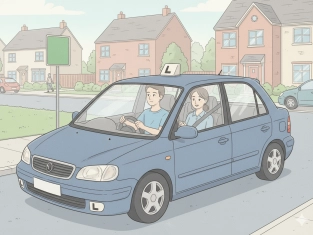Modal Verb Must
Table of Contents
Exercises
Explanation
Obligation (Something necessary or very important)
We use must when we think something is necessary or when there is a rule.
Example:
I must go now. It’s late.
You must wear a seat belt in the car.
Students must do their homework.
People must respect the law.
Strong Advice
Sometimes must shows strong personal advice — something you really recommend.
Example:
You must try this chocolate cake! It’s delicious.
You must visit London — it’s beautiful.
You must read this book. It’s amazing.
Prohibition (Not allowed)
Must not (mustn’t) means something is forbidden or not allowed.
Example:
You mustn’t smoke here.
Children mustn’t play in the street.
You mustn’t touch that wire — it’s dangerous.
Questions
Use must before the subject to ask about obligation.
Example:
Must I finish this today?
Must we bring our passports?
Must he clean his room now?
Certainty (When you are sure about something)
Use must to say you are sure something is true.
Example:
He must be tired after work. → I’m sure he is tired.
It must be cold outside. → I think it’s definitely cold.
They must know the answer. → I’m sure they do.
Structure
|
Sentence Type |
Structure |
Example |
|
Affirmative |
Subject + must + verb |
You must study today. |
|
Negative |
Subject + mustn’t + verb |
You mustn’t be late. |
|
Question |
Must + subject + verb? |
Must I call her now? |

